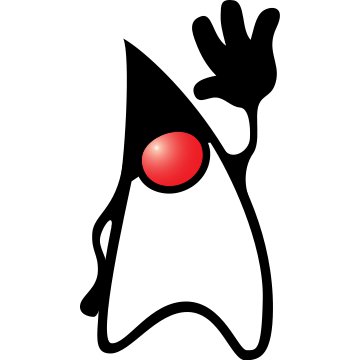JScrollPane
Handle scrollbar value changes in JScrollPane
In this example we are going to see how to handle scroll bar value changes in a JScrollPane component. You can use this when you want to know exactly what portion of the screen the user is examining. Additionally you can use this to create some very interesting UIs. For example you can change the application behavior according to the scroll bar value.
Basically, in order to handle scroll bar value changes in a JScrollPane, one should follows these steps:
- Create a new
JFrame. - Use
frame.getContentPane().setLayout(new FlowLayout())to set flow layout for the frame. - Create a new
JTextArea. - Create a new
JScrollPanethat contains the above text area. - Use
setHorizontalScrollBarPolicy(JScrollPane.HORIZONTAL_SCROLLBAR_ALWAYS)andsetVerticalScrollBarPolicy(JScrollPane.VERTICAL_SCROLLBAR_ALWAYS)to set vertical and horizontal scroll bars. - Create a class that implements
AdjustmentListenerinterface. - Override
adjustmentValueChanged. Now every time the user moves the scroll bar this method will fire up.
Let’s see the code:
package com.javacodegeeks.snippets.desktop;
import java.awt.Adjustable;
import java.awt.FlowLayout;
import java.awt.event.AdjustmentEvent;
import java.awt.event.AdjustmentListener;
import javax.swing.JFrame;
import javax.swing.JScrollPane;
import javax.swing.JTextArea;
public class HandleScrollbarValueChangesInJScrollPane {
private static final long serialVersionUID = 1L;
private static void createAndShowGUI() {
// Create and set up the window.
final JFrame frame = new JFrame("Scroll Pane Example");
// Display the window.
frame.setSize(200, 200);
frame.setVisible(true);
frame.setDefaultCloseOperation(JFrame.EXIT_ON_CLOSE);
// set flow layout for the frame
frame.getContentPane().setLayout(new FlowLayout());
JTextArea textArea = new JTextArea(5, 5);
JScrollPane scrollableTextArea = new JScrollPane(textArea);
scrollableTextArea.setHorizontalScrollBarPolicy(JScrollPane.HORIZONTAL_SCROLLBAR_ALWAYS);
scrollableTextArea.setVerticalScrollBarPolicy(JScrollPane.VERTICAL_SCROLLBAR_ALWAYS);
CustomAdjustmentListener adjustmentListener = new CustomAdjustmentListener();
scrollableTextArea.getHorizontalScrollBar().addAdjustmentListener(adjustmentListener);
scrollableTextArea.getVerticalScrollBar().addAdjustmentListener(adjustmentListener);
frame.getContentPane().add(scrollableTextArea);
}
static class CustomAdjustmentListener implements AdjustmentListener {
@Override
public void adjustmentValueChanged(AdjustmentEvent evt) {
Adjustable source = evt.getAdjustable();
// check if user is currently dragging the scrollbar's knob
if (evt.getValueIsAdjusting()) {
return;
}
// get the orientation of the adjustable object
int orient = source.getOrientation();
if (orient == Adjustable.HORIZONTAL) {
System.out.println("Event from horizontal scrollbar");
}
else {
System.out.println("Event from vertical scrollbar");
}
// get the type of adjustment which caused the value changed event
int type = evt.getAdjustmentType();
switch (type) {
case AdjustmentEvent.UNIT_INCREMENT:
System.out.println("increased by one unit");
break;
case AdjustmentEvent.UNIT_DECREMENT:
System.out.println("decreased by one unit");
break;
case AdjustmentEvent.BLOCK_INCREMENT:
System.out.println("increased by one block");
break;
case AdjustmentEvent.BLOCK_DECREMENT:
System.out.println("decreased by one block");
break;
case AdjustmentEvent.TRACK:
System.out.println("knob on the scrollbar was dragged");
break;
}
// get the current value in the adjustment event
int value = evt.getValue();
System.out.println("Current Value: " + value);
}
}
public static void main(String[] args) {
//Schedule a job for the event-dispatching thread:
//creating and showing this application's GUI.
javax.swing.SwingUtilities.invokeLater(new Runnable() {
public void run() {
createAndShowGUI();
}
});
}
}
This was an example on how to handle scroll bar value changes in JScrollPane component.



